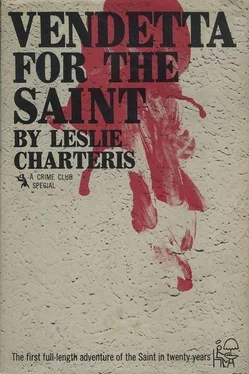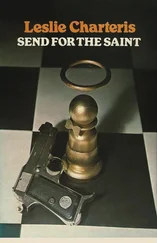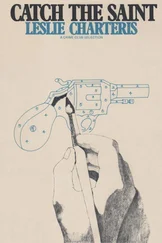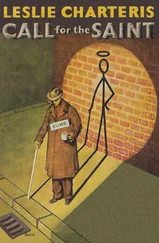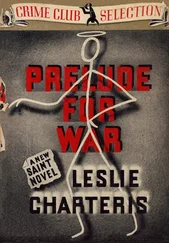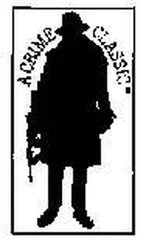Since the evening meal is customarily a light one, it began with olive schiacciate, a succulent salad of olives, celery, and peppers. After this came the Involtini alla siciliana, a toothsome filling in envelopes of gossamer-light paste smothered in a sauce so savory that good manners could only encourage the pursuit of every last drop with mops of the crusty brown home-baked bread. A large circulating carafe of young home-made red wine provided ample and impeccable liquid accompaniment; and after observing that everyone’s glass was filled from it, just as the same platters were presented to all of them to help themselves, except Lo Zio whose plate was tended by Gina sitting next to him, Simon was able to suppress all disturbing memories of the Borgias and give himself up to unstinting enjoyment of his gastronomic good fortune.
They made a strange quartet around the massive age-blackened table, and the medieval gloom around them and the echoing footsteps of the maid on the bare floor did little to encourage relaxation and conviviality, but by concentrating on Gina and the food he was able to maintain some harmless and totally unmemorable conversation, while wondering all the time why he had been invited to stay and when the reason would be revealed in some probably most unpleasant and distressing way.
“A most wonderful meal,” he complimented Donna Maria at the end of it. “I feel guilty for imposing on you, but I shall always be glad that I did.”
“You must not rush away. We will have coffee in the drawing room, and I will see if there is some brandy, if you would like that.”
She flashed her alligator smile as she rose; and Simon, steeled now not to recoil, smiled back.
“Perhaps I should refuse,” he said. “But that might suggest that you did not mean it, and I am sure you do.”
As he helped Gina to push the wheel-chair again, which somehow seemed to give them a sort of secret companionship, she said: “I don’t know how you’ve done it, but nobody ever broke her down like this before. Brandy, now!”
“Brandy, ah!” repeated Lo Zio, his head lifting like a buzzard’s and swivelling around.
“You should have given me a chance in that restaurant,” said the Saint. “If I could have persuaded you to stay for lunch, we might have had all the afternoon together.”
The drawing room had three electric lights of thrifty wattage which made it very little brighter than the dining room. The furniture was stiff and formal, a baroque mixture of uncertain periods, upholstered with brocades as faded as the heavy drapes. Donna Maria came in with a dusty bottle, followed by the maid with a tray of coffee.
“Would you be so kind as to open it, Signor Templar? I am sure you know how to handle such an old bottle better than we women.”
Simon manipulated the corkscrew with expert gentleness, but not without the thought that he might have been given the job as yet another move to reassure him. Certainly it enabled him to verify that this bottle, with all its incrustations of age, would have been even harder to tamper with than the gin which he had drunk before dinner. He deciphered with approval the name of Jules Robin under the grime on the scarred label, and poured generous doses into the snifters which were produced from some dark recess — not omitting one for Lo Zio, who showed some of his vague signs of human animation as he fastened his rheumy eyes on the bottle.
“Salute!” Simon said, and watched them all drink before he allowed his own first swallow to actually pass his lips.
It was a magnificent cognac, which had probably been lying in the cellar since the death of Gina’s father, and nothing seemed to have been done to turn it into a lethal or even stupefying nightcap.
Was all this hospitality, then, nothing but a stall to create time, during which Al Destamio might round up a few commandos and get them out to the mansion to capture the Saint or quietly mow him down?
Whatever the reason, he felt sure that Gina was not in on it. He looked again at her lovely radiant face, alight with the spontaneous pleasure of the kind of company which she could almost never have been permitted, and decided that he could lose nothing by testing just how far this astounding acceptance could be stretched.
“I am looking forward to seeing the local sights tomorrow, even though I have to do it with a commercial guide,” he said, and turned to Donna Maria. “Or now that you know me a little better, would you reconsider and let Gina accompany me?”
An observer who was unacquainted with the preceding circumstances would have assumed, at a glance, that Donna Maria was trying inconspicuously to swallow a live cockroach which she had carelessly sucked in with her brandy.
“Perhaps I was being too hasty,” she said. “Since you are such a close friend of Alessandro, there is really no reason for me to object. What are you most interested in?”
The resultant discussion of Sicilian antiquities continued this time with no contribution from Gina, whose eyes had become slightly glassy and her jaw slack, either from renewed bewilderment or from trepidation lest anything she interjected would change her aunt’s mind again.
Another refill of cognac was pressed on the not too resistant Saint, though curtly refused to Lo Zio, who having smacked his way through his first was plaintively extending his glass for more. But after that there was nothing left to stay for, short of asking if they had a spare room for the night.
“Tomorrow at ten, then, Gina,” he said, and stood up. “And I’ll tell Alessandro how nice all of you have been.”
The last remark was principally intended for the reigning tyrant of the establishment, but it scored first on Lo Zio, who must have been feeling some effects from his unaccustomed libations.
“Ah, Alessandro,” he said, as if some cobwebby relay had been tripped. “I told him. I warned him. Told him he should not go to Rome—”
“It is late, Lo Zio, and well past your bed time,” Donna Maria said hastily.
She whipped the wheel-chair around with a suddenness that had the old man’s head bobbing like a balloon on a string. The maid came scurrying in on a barked command, and whisked away the chair and its mumbling contents.
“Buona notte, signore,” Donna Maria said, with one more spasm of her overworked facial muscles, and the impression of it seemed to remain even after she had closed the front door, like the grin of some Sicilian-Cheshire cat.
Simon made the short walk to the driveway gate with his nerves as taut as violin strings, his ears straining, and his eyes darting into every shadow. But there was no warning scuff or stir to herald an onslaught by lurking assailants, no crack of a shot to make belated announcement of a bullet. He opened the inset door, flung it open, and leapt far through it in an eruptively connected series of cat-swift movements calculated to disconcert any ambush that might be waiting outside; but no attack came. An almost-full moon that was rising above the hills showed a road deserted except for his own car where he had left it, and the only sound was the thin shrill rasping of multitudinous nocturnal insects. Feeling a trifle foolish, he turned back and shut the little door, and then walked towards the Bugatti, making a wide swing out into the road around it, just in case someone was skulking on the side from which he would not have been expected to approach. But no one was.
Then he had not been detained in order to gain time to organize a bushwacking, it seemed...
But the instinct of an outlaw who had carried his life in his hands so often that his reflexes had adapted to it as a natural condition was not lulled into somnolence merely because logic seemed to have suspended the immediate need for it. If anything, it was left more on edge than ever, seeking the flaw in conclusions which did not jibe with intuition.
Читать дальше
